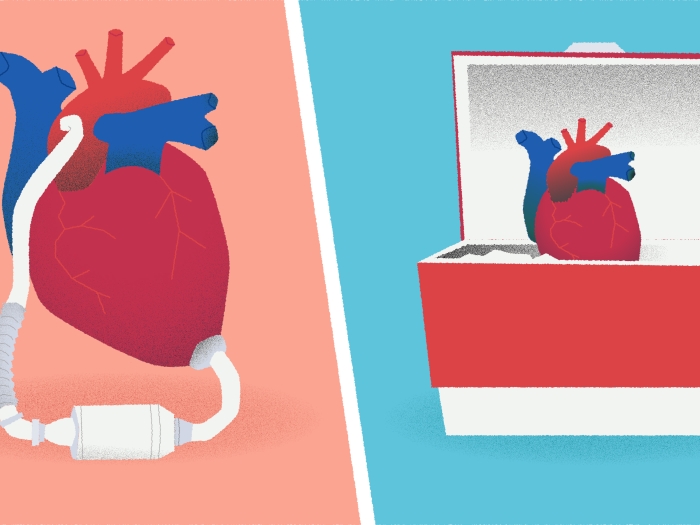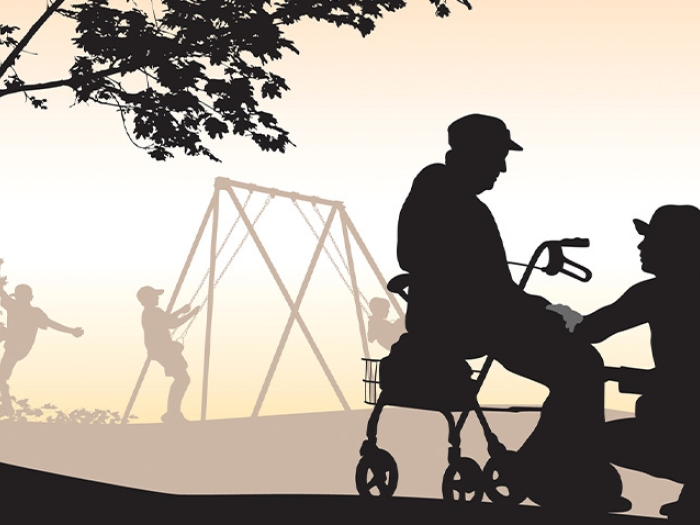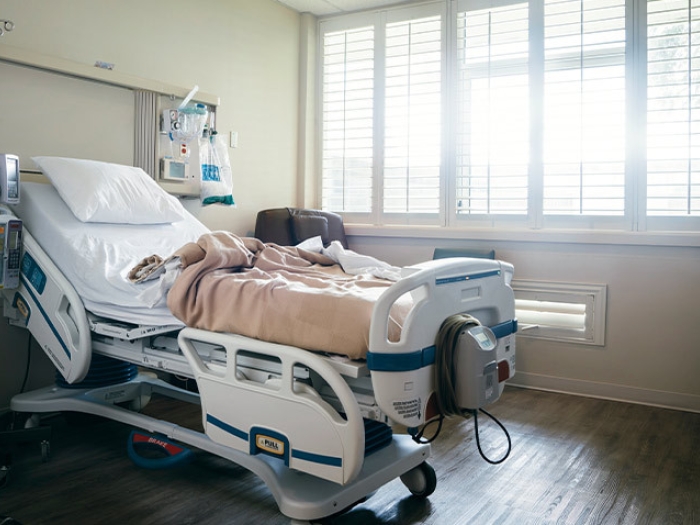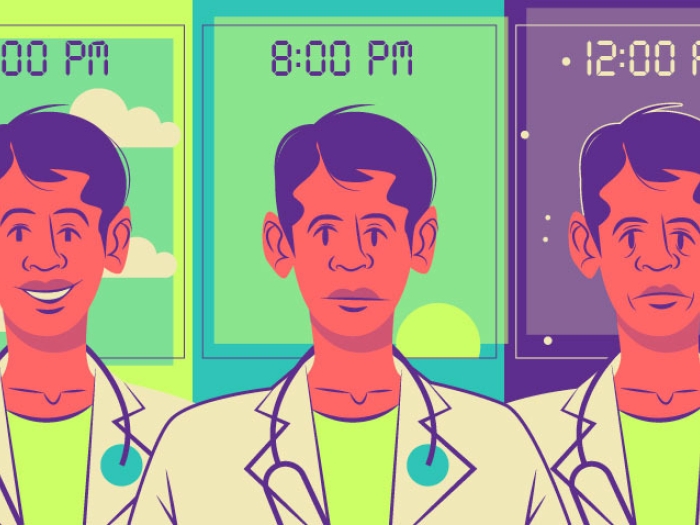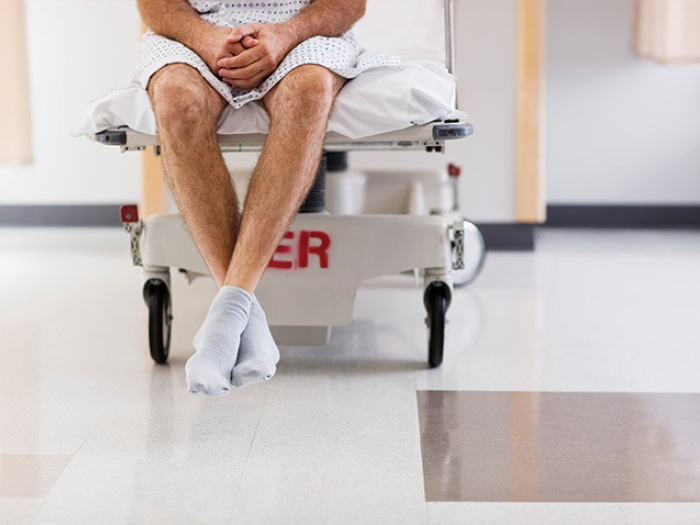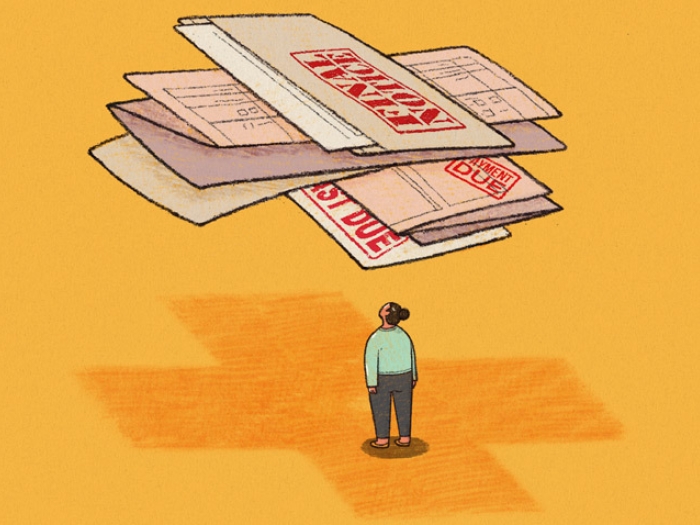Most nurses focus on caring for patients, but some also pursue academic research to improve standards of care. Michigan Medicine experts discuss the crucial connection.
7:00 AM
Author |
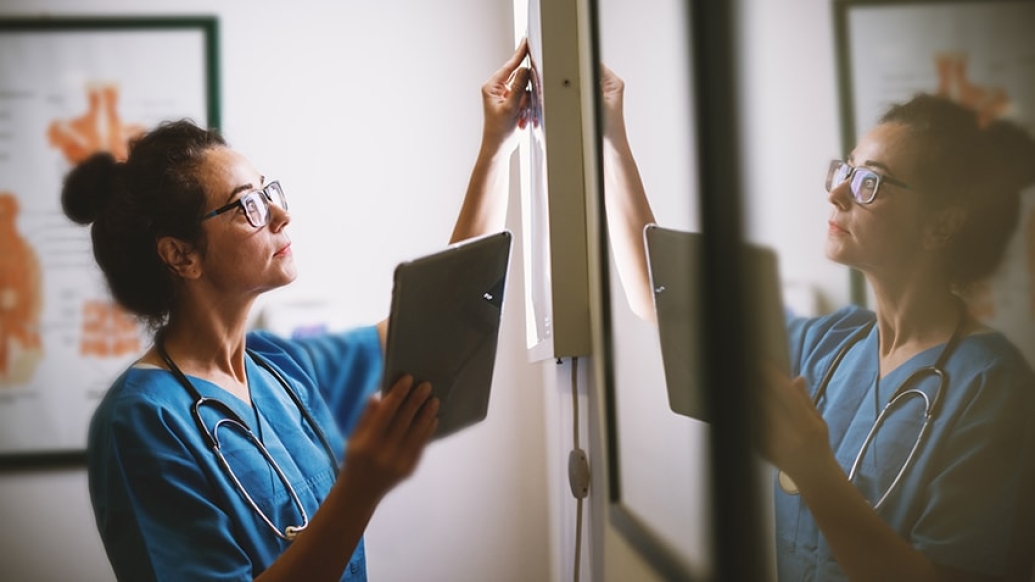
As the front-line workforce of American health care, nurses help individual patients every day — in clinics, hospitals, long-term care settings, schools, industry and even medical helicopters.
MORE FROM THE LAB: Subscribe to our weekly newsletter
Some, however, take their passion for caring to an even broader level by serving as researchers.
They hold key roles in creating, conducting, analyzing and publishing studies about specific aspects of health care.
They document problems on a broad scale, develop and test innovations to improve care, and measure the impact of new policies, practices and technologies. They also help run clinical trials of new treatments and travel to remote communities to better understand health beliefs and practices.
Their day-to-day roles offer a unique benefit when applied to research.
"Nursing science can transform outcomes for patients, families, and communities," says University of Michigan nursing professor Chris Friese, Ph.D., R.N. "Because of their proximity to patients and advocacy skills, nurses integrate clinical realities when designing their studies."
At U-M, many research nurses on the nursing and medical school faculties have joined the Institute for Healthcare Policy and Innovation — a community of health services researchers from many backgrounds and disciplines.
Here's what some of them have to say about their work and profession:
Patient safety
Sarah Krein, Ph.D., R.N., research professor, Division of General Medicine, Medical School member of IHPI, the U-M/VA Patient Safety Enhancement Program and VA Center for Clinical Management Research
While my day job involves conducting health services research, it is my clinical background as a nurse that keeps me grounded and focused on the goal of improving health and health care delivery — whether in the hospital, an outpatient setting or the community.
I believe my nursing background provides me with a unique perspective. Given the importance of team science, I would sincerely love to see more nurses involved in research. It does not necessarily require an advanced degree, rather intellectual curiosity and a passion for improving health care — characteristics that I believe are inherent in many, if not most, of my nursing colleagues.
Given the importance of team science, I would sincerely love to see more nurses involved in research.Sarah Krein, Ph.D., R.N.
Cancer
Chris Friese, Ph.D., R.N., Elizabeth Tone Hosmer Professor, U-M School of Nursing, member of IHPI and the U-M Rogel Cancer Center
It's hard to believe that in the 1970s, scholars were debating whether nursing was a distinct scientific discipline. I am grateful to the pioneering nurse scientists who scuttled that debate with their pathbreaking discoveries.
SEE ALSO: For Nurses Week, Chief Nurse Executive Discusses Magnet Status
For decades, nurse pioneers have conducted studies that have changed clinical practice to improve patient outcomes. Some early examples: overnight parental visits improved recovery of hospitalized children, nurse-led home visits to at-risk mothers improved long-term outcomes of both the mom and the child, and hospitals that granted nurses more autonomy in their clinical practice had better patient outcomes.
I was motivated to become a nurse scientist because I saw the problems my patients with cancer faced. My own research seeks to reduce the burdens patients with cancer face during their treatments by managing symptoms before they escalate and require emergency room or hospital care.
Nurses are natural problem solvers and collaborators; we partner with patients and clinicians to conduct high-impact, practical science that addresses vexing problems in health care delivery.
Intensive care
Deena Costa, Ph.D., R.N., assistant professor, School of Nursing, member of IHPI
What drove me to become a nurse researcher was my clinical practice as a surgical ICU nurse, specifically, caring for one patient who had a protracted ICU stay. I was his primary nurse, meaning that I always took care of him when I worked — and in turn, I developed a great relationship with him, his family and his surgical team.
There were several instances in which I recall leaving work and thinking he would not be alive when I showed up in the morning. But he persevered. He survived primarily because the clinicians caring for him were invested and worked exceptionally well together as a team. We knew one another and trusted one another implicitly.
But not all patients are always able to receive that sort of care. I remember when he was discharged from the unit thinking, "I want to figure out a way to make sure that all ICU patients are cared for by a highly effective and well-functioning team." Getting a Ph.D. was the next logical step, and I have since dedicated my professional life to examining, understanding and improving ICU teams to maximize survival for ICU patients.
Emergency care
Sue Anne Bell, Ph.D., FNP-BC, clinical associate professor, School of Nursing, member of IHPI, and the first nurse to participate in the IHPI National Clinician Scholars Program
I am a nurse and also a scientist. I study disasters and community-level emergencies, with the goal of building a better disaster response for older adults. My research spans multiple disciplines — nursing, epidemiology, biostatistics and the social sciences — to address the research questions I identify in my clinical work in disaster response.
Disasters affect millions of Americans each year and cost billions. Growing up in Florida, I saw these issues firsthand during each hurricane season. Now as a nurse-scientist, I work to address the challenges older adults have in meeting their health needs while communities, and health systems, are in shock. My research contributes to much-needed policy on emergency preparedness and response.
Nurse-scientists don't just study nurses and nursing. We are experts in our respective fields and contribute to that science. I study disasters and emergency response, and while disaster nursing is a part of that, I work in an interdisciplinary environment every day.
Nurse-scientists don't just study nurses and nursing. We are experts in our respective fields and contribute to that science.Sue Anne Bell, Ph.D., FNP-BC
Addiction
Stephen Strobbe, Ph.D., R.N., clinical associate professor, U-M School of Nursing, associate professor, Medical School Department of Psychiatry, member of IHPI
Nurses are in unique positions to ask and answer questions of real clinical significance. My first foray into research was back in early 1995 with the design, implementation and evaluation of outpatient detoxification from alcohol and other drugs — including opioids — which was a fairly radical notion at the time.
SEE ALSO: Doctors Who Specialize in Not Specializing: Key to Medicine's Future
From the outset, I knew that we would want to know, "Does this really work?" This led to a series of peer-reviewed journal articles, including one on predicting completion of outpatient opioid detoxification with clonidine, another on gender and outpatient detoxification from alcohol, and one on patient satisfaction with outpatient detoxification from alcohol.
Dissemination of our findings can help establish standards for quality care and inform the next set of clinical questions for nurses to ask and answer.
Surgery
Greta Krapohl, Ph.D., research investigator, U-M Medical School Department of Surgery, associate director, Michigan Surgical Quality Collaborative, member of IHPI
What type of antibacterial prep is the best protection to prevent a surgical site infection? Will a call from the nurse 48 hours after discharge reduce visits to the emergency department? Will chewing gum after colon surgery help accelerate bowel function? Will more education before patient surgery help a patient heal faster? Will an intramuscular injection provide better pain relief than a pill? Which patients are most susceptible to a health-care associated infection?
These are the types of questions that compelled me to do research in quality and patient safety. I like to think of my research at the Michigan Surgical Quality Collaborative as a "blue highways" approach, which is described in a 2007 JAMA article describing practice-based research.
On the old highway maps of America, the main interstates were red and the back roads were blue. On the road map for research, the red highways are the large randomized controlled trials and new inventions and discoveries. The blue highways are the interconnections between these scientific discoveries and the care that patients receive at the bedside. Nursing research in quality and patient safety I consider as part of the blue highway to help link the science and bedside practice.
Nurse researchers are critical to this connection as they have the clinical experience and knowledge to understand, identify and develop how best practices can be implemented and disseminated at the point of care. Whether on the large red highway or the smaller blue highways, nursing research can make that connection stronger.

Explore a variety of healthcare news & stories by visiting the Health Lab home page for more articles.

Department of Communication at Michigan Medicine
Want top health & research news weekly? Sign up for Health Lab’s newsletters today!
